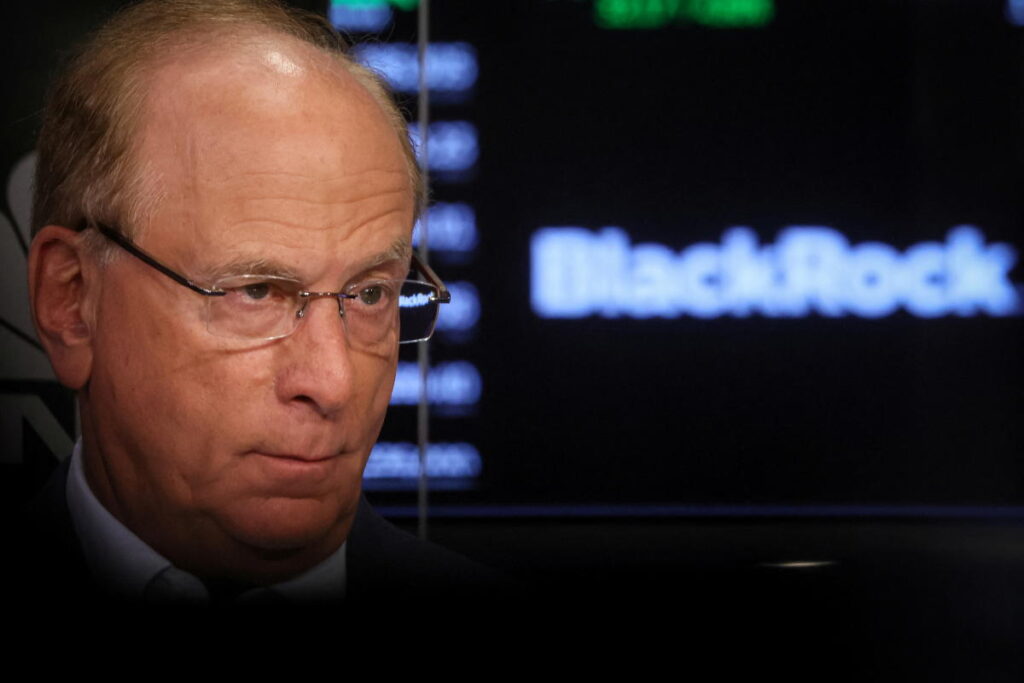BlackRock, the world’s largest asset manager, has recently made a significant move in the financial markets by committing $12 billion in stock for the acquisition of HPS Investment Partners. HPS is a private credit firm founded by former executives from Goldman Sachs and JPMorgan Chase, specializing in lending to riskier companies. During an investor call, BlackRock’s CEO, Larry Fink, emphasized that private markets have now become an integral part of the broader investment landscape, rather than a separate category. This acquisition is a response to the growing allure of private credit, a market that has expanded dramatically over the past decade, largely fueled by rising interest rates and stricter regulatory environments that pushed banks away from leveraged lending.
The private credit market, which encompasses all non-publicly traded debt, has skyrocketed in value from $41 billion in 2000 to approximately $1.6 trillion today, according to data from Preqin. While this figure still pales in comparison to the over $12.5 trillion in loans held by U.S. banks, it showcases the growing demand for alternative financing options. BlackRock, which manages assets totaling $11.5 trillion, fits into a broader trend among major asset managers who are aggressively entering private markets. This includes notable alliances, such as the $25 billion private credit fund launched by Citigroup and Apollo Global Management, marking the largest partnership between a private entity and a major bank.
However, the rapid growth of private credit has raised concerns among industry leaders, including JPMorgan’s CEO, Jamie Dimon. He has publicly expressed worries about the risks associated with such unregulated lending markets, warning that they may enable hidden risks that fall outside the purview of standard banking regulations. Dimon’s concerns were amplified by the potential ramifications for retail investors, who might face significant losses should the market experience downturns. This highlights an essential tension in the financial landscape, as traditional lending institutions reconsider their positions in the wake of evolving regulatory pressures and the changing dynamics of credit markets.
The acquisition of HPS marks BlackRock’s third significant deal in 2024, all aimed at bolstering its presence in alternative asset classes. Earlier in the year, BlackRock entered into agreements to purchase a data provider, Preqin, for $3.2 billion and private equity firm Global Infrastructure Partners for about $12.5 billion. The latter acquisition focused specifically on the anticipated demand in sectors such as new energy and digital infrastructure. With HPS, BlackRock is positioning itself as one of the leading players in the private credit arena, with the combined assets of BlackRock and HPS totaling approximately $220 billion.
Following its separation from JPMorgan in 2016, HPS has developed a robust portfolio with over $148 billion in managed assets, reflecting its focus on private credit solutions in response to the post-2008 regulatory environment. The firm’s founders – Scott Kapnick, Scot French, and Mike Patterson – bring significant expertise to BlackRock, where they will now lead a newly formed private financing solutions unit. This enhanced capacity enables BlackRock to leverage its existing large client base, particularly in insurance, to cross-sell HPS’s private credit offerings, thereby maximizing growth opportunities in this competitive sector.
Looking ahead, the partnership between BlackRock and HPS is poised to capitalize on the growing demand for private credit solutions, with expectations to close the deal by mid-2025, pending regulatory approvals. As the financial landscape continues to evolve, the integration of private and public markets reflects a broader trend towards diversification and innovation in investment strategies. BlackRock’s ambitions in the private credit sector, combined with HPS’s expertise, position them well to navigate and lead in this increasingly competitive and potentially lucrative market. The future remains cautiously optimistic as both companies pursue new avenues for growth amid the challenges and opportunities that the dynamic financial markets present.

